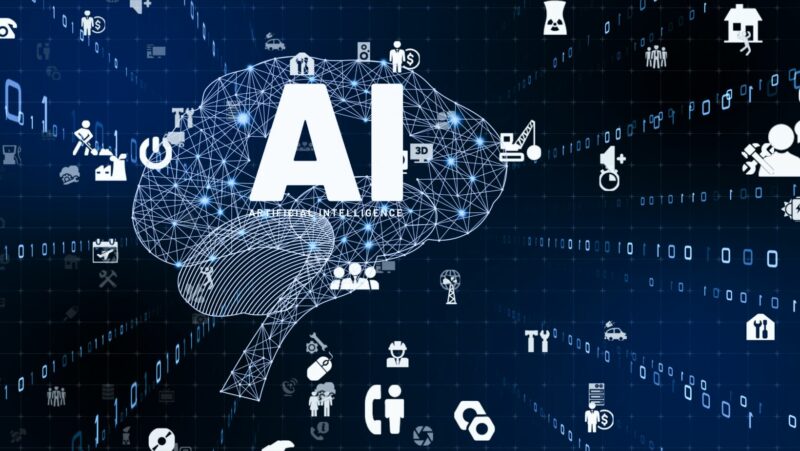In today’s fast-paced digital landscape, businesses are constantly seeking innovative ways to stay ahead. AI-driven content strategy has emerged as a game-changer, offering a powerful blend of technology and creativity. By harnessing the capabilities of artificial intelligence, companies can now craft content that’s not only relevant but also highly personalized, ensuring it resonates with their target audience.
AI tools analyze vast amounts of data at lightning speed, identifying trends and consumer behaviors that might go unnoticed by human eyes. This data-driven approach allows marketers to tailor their content strategies with precision and foresight. As a result, businesses can engage more effectively with their audience, boost brand loyalty, and drive conversions. To enhance your marketing visuals, using the offering AI pictures generator can help create high-quality, engaging images tailored to your brand’s needs.
AI-Driven Content Strategy
 AI-driven content strategy involves integrating artificial intelligence to analyze data, predict trends, and optimize content creation. As AI analyzes vast data sets, it identifies patterns in consumer behavior, enabling marketers to craft targeted content. For instance, AI tools like predictive analytics can forecast audience preferences by examining historical data, facilitating personalized content delivery.
AI-driven content strategy involves integrating artificial intelligence to analyze data, predict trends, and optimize content creation. As AI analyzes vast data sets, it identifies patterns in consumer behavior, enabling marketers to craft targeted content. For instance, AI tools like predictive analytics can forecast audience preferences by examining historical data, facilitating personalized content delivery.
AI personalizes content through natural language processing (NLP) capabilities. By understanding context and nuances, NLP tailors messaging to resonate with specific audiences. This approach increases engagement levels across different channels, such as social media and email marketing.
Automation streamlines repetitive tasks, allowing content creators to focus on strategy and creativity. AI systems handle tasks like scheduling and distributing content, ensuring optimal timing and platform selection. This efficiency boosts productivity and allows for greater focus on developing innovative content ideas.
AI-driven insights refine content strategies through continuous feedback. Machine learning algorithms assess content performance, suggesting adjustments to enhance reach and impact. These insights support agile strategies, adapting quickly to evolving market demands.
Key Components of AI Driven Content Strategy
Data Analysis
 AI enhances data analysis by processing massive datasets rapidly. This capability helps businesses understand audience behavior patterns and preferences, enabling them to tailor content precisely. Sophisticated algorithms identify hidden patterns in user interactions, offering insights for customized engagement.
AI enhances data analysis by processing massive datasets rapidly. This capability helps businesses understand audience behavior patterns and preferences, enabling them to tailor content precisely. Sophisticated algorithms identify hidden patterns in user interactions, offering insights for customized engagement.
Predictive analytics forecasts trends and consumer interests using past data analysis. AI-driven systems anticipate audience needs, allowing companies to create content that aligns with potential future demands. This foresight is crucial for maintaining relevance and competitiveness in dynamic markets.
Natural Language Processing (NLP)
NLP interprets and understands the complexities of human language. It helps in identifying sentiment, context, and intent in user-generated content, facilitating more effective personalization. This leads to higher engagement as content resonates with the audience on a deeper level.
Automation Tools
Automation streamlines content management by handling scheduling, distribution, and repetitive tasks. It enables creators to focus on strategy, creativity, and innovation, ensuring that content reaches the right audience at the most effective times.
Benefits of Implementing AI
Implementing AI in content strategy enhances efficiency and personalization, providing distinct advantages for businesses in the digital sphere.
Improved Efficiency
AI streamlines content processes by automating repetitive tasks like content curation and scheduling. It quickly analyzes data, saving time and reducing manual effort. With AI handling data collection and initial analysis, teams can focus on higher-level strategy and creativity. Tools such as AI-driven content management systems ensure timely and accurate deployment, resulting in an optimized ROI.
Enhanced Personalization
 AI enables content personalization by analyzing user data. It helps create tailored content based on audience preferences and behaviors, increasing engagement and satisfaction. Natural language processing (NLP) empowers AI to understand language nuances, allowing for more relevant and human-like interactions with users. By delivering personalized experiences, businesses can strengthen customer relationships and boost conversion rates.
AI enables content personalization by analyzing user data. It helps create tailored content based on audience preferences and behaviors, increasing engagement and satisfaction. Natural language processing (NLP) empowers AI to understand language nuances, allowing for more relevant and human-like interactions with users. By delivering personalized experiences, businesses can strengthen customer relationships and boost conversion rates.
Challenges and Considerations
Adopting AI-driven content strategies introduces certain challenges. It’s crucial to address these to maximize benefits and ensure seamless integration.
Data Privacy Concerns
AI-driven strategies rely heavily on data collection and analysis, raising data privacy concerns. Protecting user data against breaches and misuse is essential, necessitating adherence to data protection regulations such as GDPR and CCPA. Implementing secure data handling protocols and obtaining user consent transparently enhances trust and compliance.
Integration with Existing Systems
Integrating AI with existing systems often presents technical and operational challenges. Compatibility issues may arise with legacy systems, requiring updates or replacements for smooth integration. Ensuring seamless data flow between AI tools and current infrastructure demands thorough planning, including thorough testing and system audits to minimize disruptions and maintain productivity.

